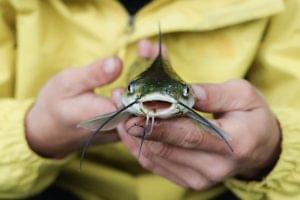This is how our fish dishes will be tastier: the breeding of native Hungarian fish species has been perfected
The complex development of the breeding technology of three indigenous Hungarian fish species, carp, perch and catfish, was realized with a European Union grant of nearly one billion forints, project manager of a consortium of the country’s leading agricultural research institutions, Ákos Horváth. – he told MTI on Wednesday.

Breeding becomes much more efficient with the help of improvements. (Photo: Pixabay)
The development realized in the period between 2017-2021 was supported by the Economic Development and Innovation Operational Program. As a result of the project implemented with the help of a HUF 987.44 million non-refundable grant, a significant improvement in the quality of domestic fish production and consumption can be achieved, the statement emphasized. They added: during the development of breeding technology, the goal was to validate both ecological and consumer aspects.
Faster breeding, better genetics
Among the most important fish species farmed in Hungary, in the case of carp, instead of the previous three-year production structure, a shorter, two-year farming technology was developed. For this, they selected the most genetically suitable carp breed and developed a new feeding recipe. In the case of perch and catfish, a deep-frozen gene bank was created, which serves to protect and preserve the genetic reserves of the respective populations. For both fish species, it was an important aspect that they were suitable for intensive rearing. The project was initially led by Szent István University, and after the merger of several partners, it was followed by the Hungarian University of Agricultural and Life Sciences. The University of Debrecen was also a member.
MTI
Related news
Related news
KSH: in the fourth quarter of last year, investment performance was 1.3 percent lower than a year earlier
🎧 Hallgasd a cikket: Lejátszás Szünet Folytatás Leállítás Nyelv: Auto…
Read more >







